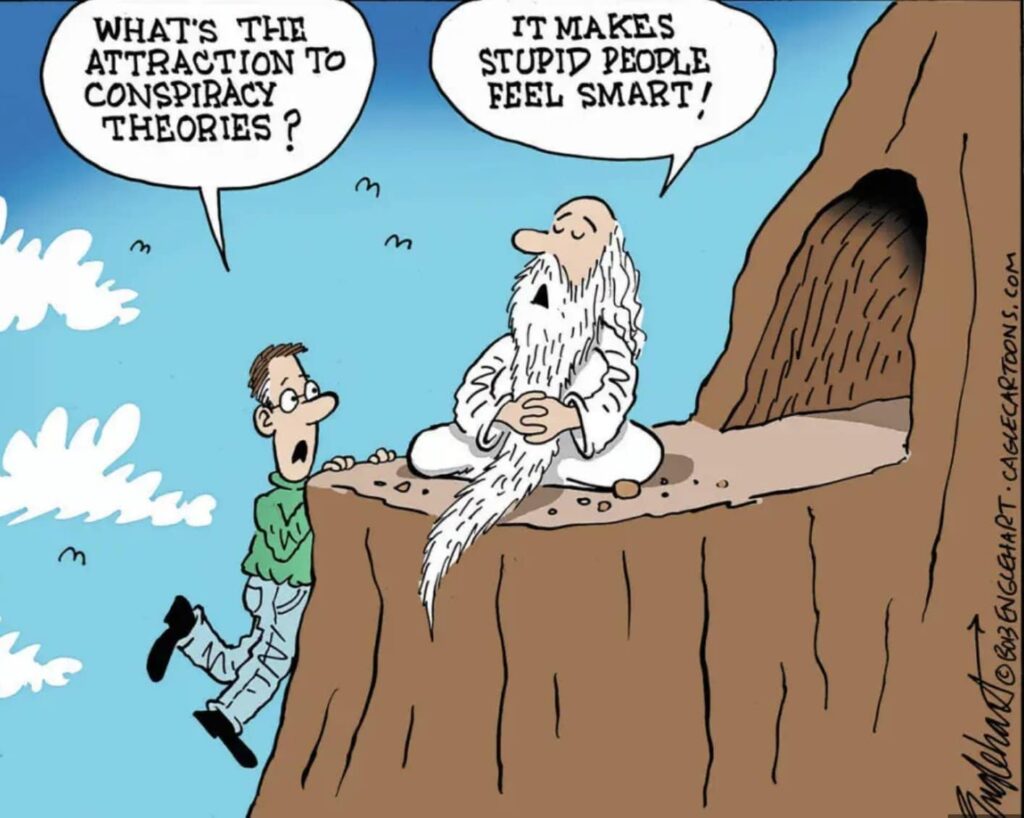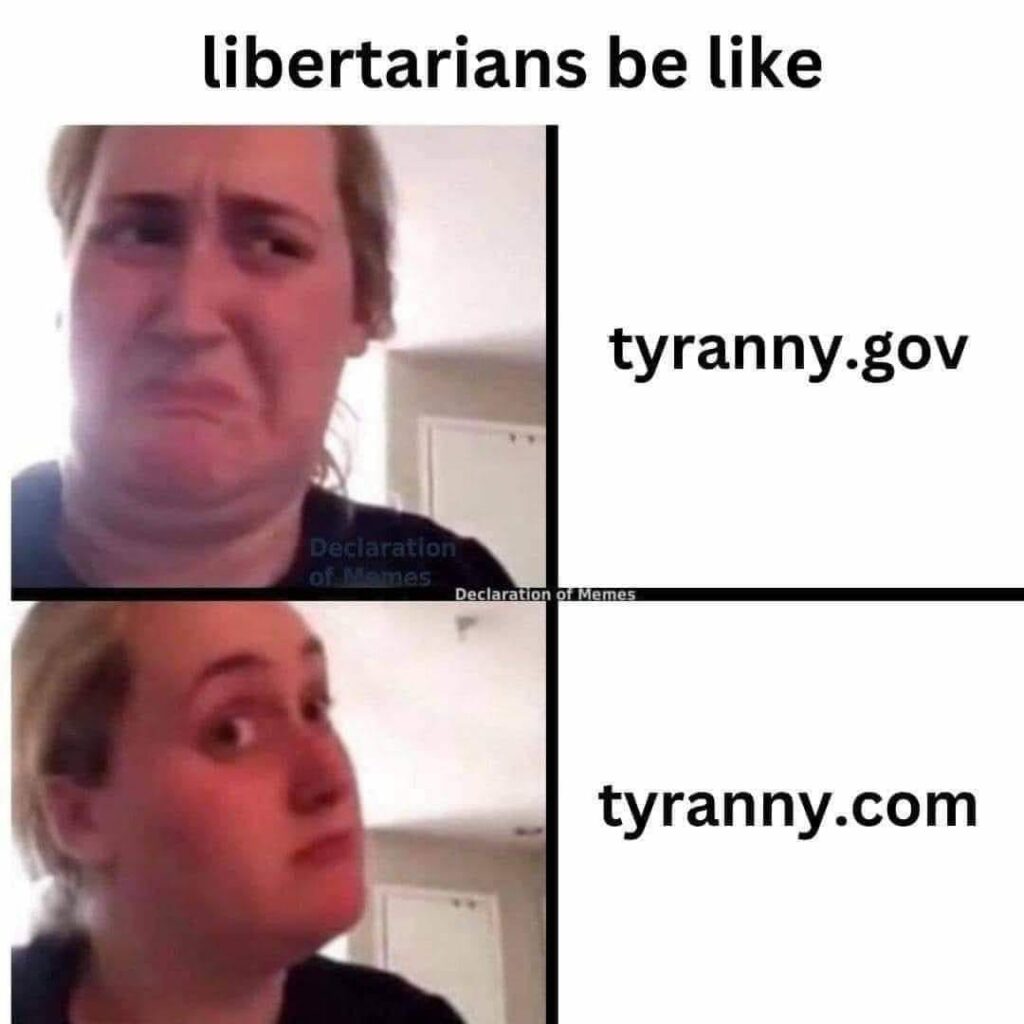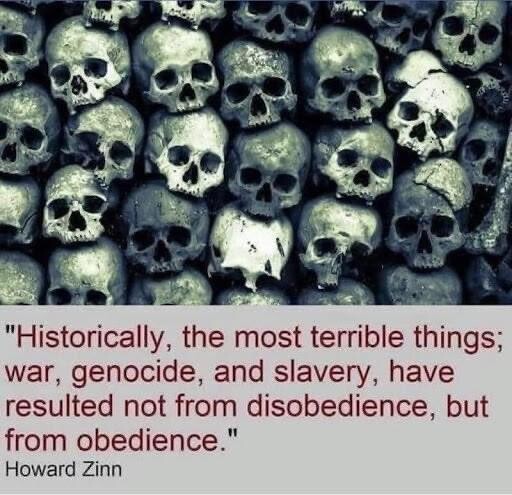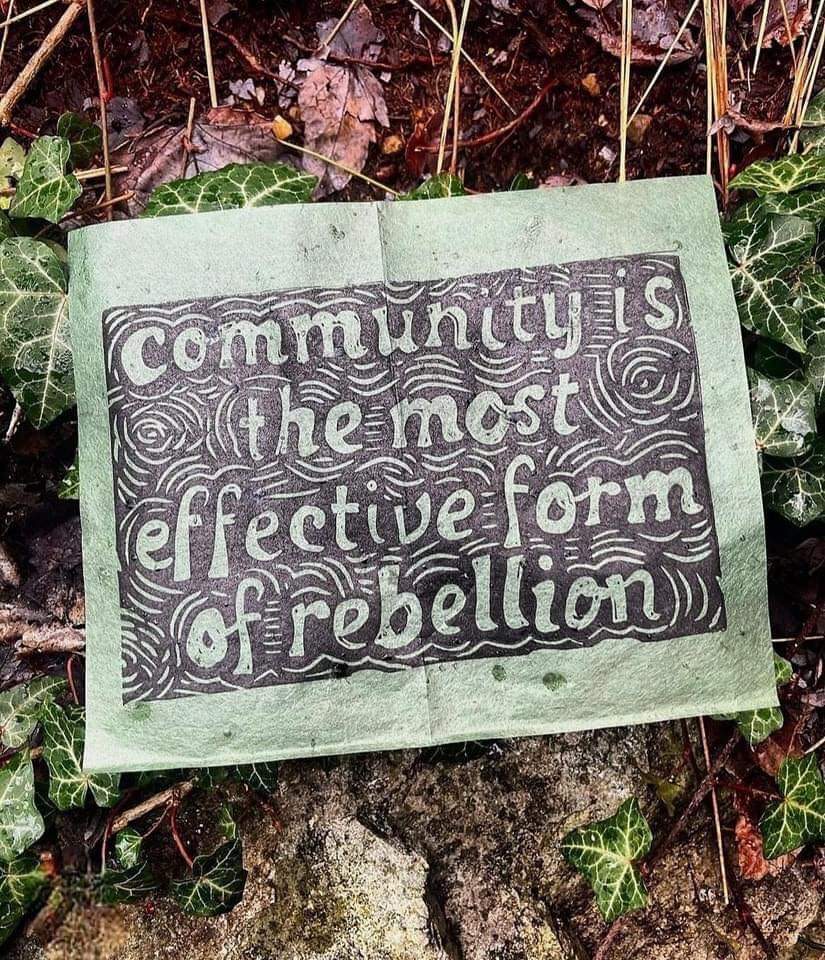This is my reaction from the talk, have not read the book.
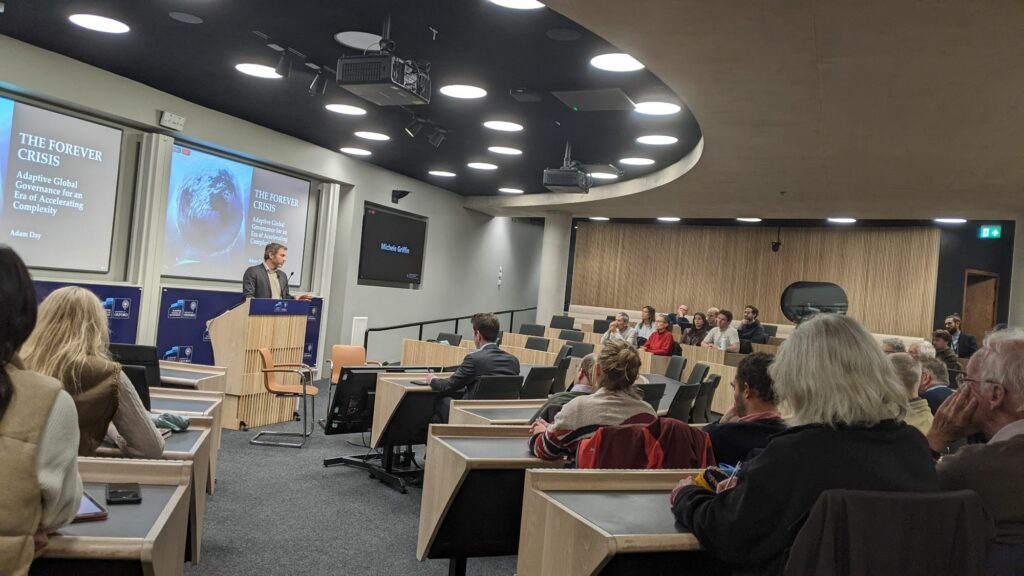
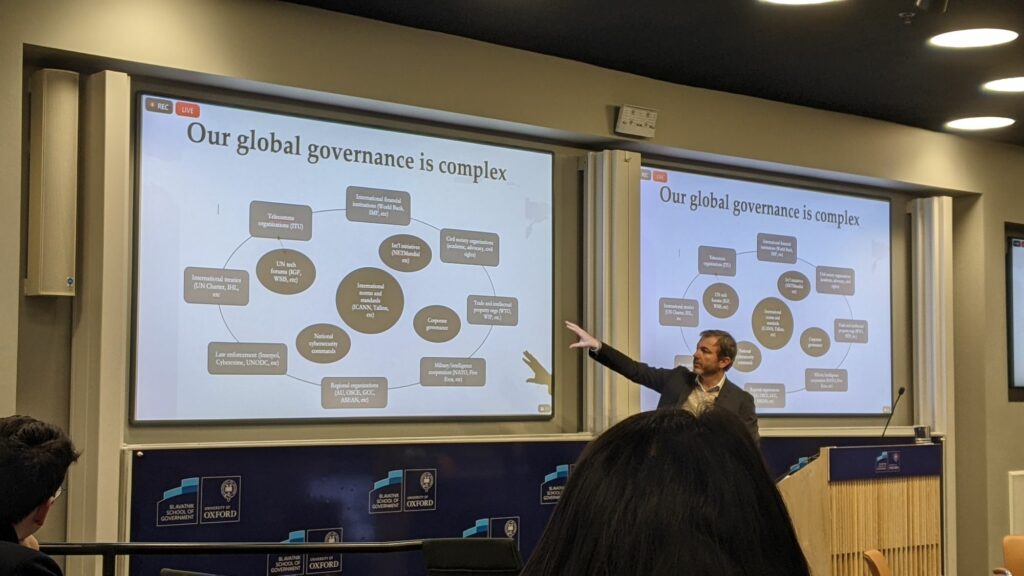
In The Forever Crisis, the author presents complex systems thinking as a framework for addressing the world’s intractable challenges at the level of global governance. The book critiques the traditional top-down approaches pushed by powerful institutions like the #UN, highlighting how these solutions are a mismatched for complex, interwoven issues like #climatechange, security, finance, and digital governance.
One of the core issues raised is that global governance structures are failing to keep pace with the crises they are supposed to address. Traditional approaches “silo” issues, handling them in isolation, which makes it hard for messy interconnected challenges to be addressed in a holistic way. For example, while climate change is universally recognized as a priority, the complex “network of governance” is fragmented, leaving institutions like the UN and #IPCC struggling to effectively drive any change. These traditional, siloed paths reflect a short-term vision, prioritizing superficial “silver bullet” solutions over more, transformative approaches.
A complex systems approach, likening effective governance to networks such as the “mushrooms under the forest floor”, resilient, interconnected, and adaptable. Rather than rigid, top-down mandates, this metaphor supports creating flexible, networked governance structures that adapt to shifting crises. The notion of “cascading solutions” ripple across systems in a way that amplifies positive outcomes, rather than relying on isolated, large-scale interventions.
The talk highlights how unready we are for institutional preparedness and adaptive governance, particularly in preparing for shocks, both anticipated and unanticipated. Using COVID-19 as an example, he critiques the over-reliance on “luck” rather than robust structures, suggesting that governance systems must be nimble and interconnected enough to absorb shocks without collapsing. Currently, we have a fasard, the UN and other agencies are trying to act as “confidence boosters,” convincing themselves of their own effectiveness.
Challenges to implementing complexity in governance, despite the potential of complexity theory, the talk raises questions about implementation. Power structures are entrenched in traditional governance systems, making it difficult to shift away from rigid, reactive models. Further, financial systems tend to funnel resources into quick-fix solutions rather than funding long-term, adaptive responses.
My though, about the talk on mainstream solutions, touches on an essential question: can the existing structures within the “#deathcult” of neoliberalism actually provide the transformation we need? This perspective aligns with the book’s critique, questioning whether today’s dominant structures can truly embrace a complexity-oriented approach to governance. To solve this I focus on #Indymediaback, #OMN, and #OGB as grassroots projects which underlines an alternative that builds out local, networked, and community-driven solutions, a departure from the centralized and out-of-touch responses typical of global governance.
The book’s focus on complexity theory as a tool to facilitate self-organizing, resilient paths could be a powerful argument for the decentralized work I advocate. This framework validates the idea that change might be more effectively driven from the grassroots, where diverse actors work in networked patterns that reflect the natural resilience seen in ecosystems.
The talk:
Join Thomas Hale, Professor in Public Policy at the Blavatnik School of Government, and Adam Day, Head of UN University Centre for Policy Research in Geneva, as they discuss Day’s newest book The Forever Crisis.
The Forever Crisis is an introduction to complex systems thinking at the global governance level. It offers concepts, tools, and ways of thinking about how systems change that can be applied to the most wicked problems facing the world today. More than an abstract argument for complexity theory, the book offers a targeted critique of today’s highest-profile proposals for improving the governance of our environment, security, finance, health, and digital space. It suggests that we should spend less effort and resources on upgrading existing institutions, and more on understanding how they (and we) relate to each other.
My thinking and notes.
Its the #NGO crew talking about my subject, this is a professor and the #UN secretary generals adviser. Start with basic complexity, telling a normal story.
Globalisation drives complexity, the nudge theory, the network of governance which we have to manage. Use the IPCC as a tool, but this is a mess. The argument for big solutions, top down is a bad fit for complexity thinking. The solution is tendicalse? Or the mushrooms under the forest floor, network metaphor.
Shifting tipping point, to shift change
Long problems demand complexity, current risk is undervalued
Transformative global governance, or our current global governance could go extinct.
We have a anufe data, for AI to be used as early warning “advising” governance.
So this is main-streaming looking at change and mediating the challenge. Whether it works at all is an open question, looking unlikely looking around the room.
He says we can’t co-operate, and in his terms this is correct. The solution is to try and “trick” the current systems to work together, don’t think he gets beyond this.
UN women calls the current path a failer, and that this is ongoing, but MUCH more urgent now.
In the report, the silos were knitted together, but nobody understood this, so then it was unpacked into sloes so that people could accept it.
The conference that did this report, was in a large part a confidence booster that the current systems could actually work. This is a very small step. No war was won.
The is a consensus that the current process is failing, and needs to change to challenge the current structures. The problem of re-siloing, the crumbling of bridges as they are being built, the outcome the establishment is still blocking the needed bridging.
For him, the ideas don’t create transformation. They spent a year going over old agreements, the new issues were not focused on. This was a problem of trust and transparency. So the whole process was knocked back a year.
Is this change easer or harder during crises? We tend to think that crises creates flexibility, but he argues they hold together stronger when change might be happening? She points to the defence crotch, that change is being blocked by the crises, it’s complex.
Are any of the current institutions fit to governing #AI
Finance funds silver bulite solutions rather than long term solutions. Quick fix, fixes nothing, its funding pored down the drain. His solution is a real cost on carbon if we can get the spyware command and control right to make this work.
On chip verification, hardcoded spy and control in our chips… now this is a very #geekproblem idea.
Can the states raise to work, she says we hope so 🙂 as the is no alternative 🙁 we won’t states to work, in partnership with the private secturer… we need the UN to preform its function, that partners with other actors, private structure, civil society etc.
Capacity building is 10% of the climate budget, this is about writing PDF’s, the people doing the change are simply not there.
Q. on the time to act, with the example of Gorbertrov and the claps of the Soviet Union.
Resilience is not a good thing, if the thing that is resilients are paths are not working.
Can we bake in a long term path into current decisions?
How can we change the existing system so that it balances?
The word leadership, that individuals playing a role, to be the change, is a subject that excites them.
My question would have been, the #deathcult – is the any actors or forces outside this cult – that you see could be the change we need?
He, Cascading solutions across the system fast enough to be the change we need?
She, better preparedness for the shocks, so we can pull together. To deal with issues we have not anticipated. We are not there yet.
COVID was an example of luck not structures.




